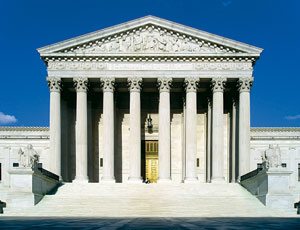The Supreme Court’s decision to lift campaign-finance restrictions on corporations has sparked mixed reactions in construction circles. Some contractors’ organizations hail the Jan. 21 ruling as a free-speech victory that will give more groups a stronger political voice. But labor unions and non-profit advocacy groups worry the decision will unleash a wave of corporate spending that could sway election results.

The high court’s 5-4 ruling in the case, Citizens United v. Federal Communications Commission, permits corporations to spend unlimited amounts on political advertising 60 days before an election. It strikes down portions of the 2002 Bipartisan Campaign Reform Act, also known as the McCain-Feingold law, for its Senate architects. The case centered on a documentary by Citizens United, a non-profit corporation, that was critical of then-presidential candidate Hillary Clinton. In the majority opinion, Justice Anthony M. Kennedy wrote that corporations’ free-speech rights are no different than those of individuals. He said prohibitions against corporations’ political speech by other corporations equates to censorship. The ruling’s scope appears to reach beyond corporations and apply to unions and advocacy groups that set aside funds for political ads, sources say.
Critics contend the ruling will have sweeping ramifications for the electoral process and give an edge to large corporations with deep pockets. Jacob Hay, a spokesman for the Laborers International Union of North America, says corporations have access to much larger sums than unions or other advocacy groups have. He adds, “This ruling opens the floodgates of corporate domination of public elections.”
But Chris Singlerling, the Associated Builders and Contractors’ director of political affairs, says labor unions will benefit from the ruling as much as corporations will. “For 20 years, there’s been this gag order,” Singerling says. “Bottom line: A piece of our First Amendment rights have been given back to us.”
Josh Zive, an attorney with the firm of Bracewell and Giuliani, says the ruling isn’t likely to produce the “flood” of spending or be as unbalanced between the corporate and non-corporate sides as some are predicting.
Jeff Shoaf, the Associated General Contractors’ senior executive director for government affairs, warns that in the wake of the decision, the type of ads that organizations purchase could be “uglier” than those that candidates themselves buy. He says, “It’s going to open up [political advertising] to a lot of groups that don’t have a long-term view of things. They are looking at a single issue or [election] race.”

